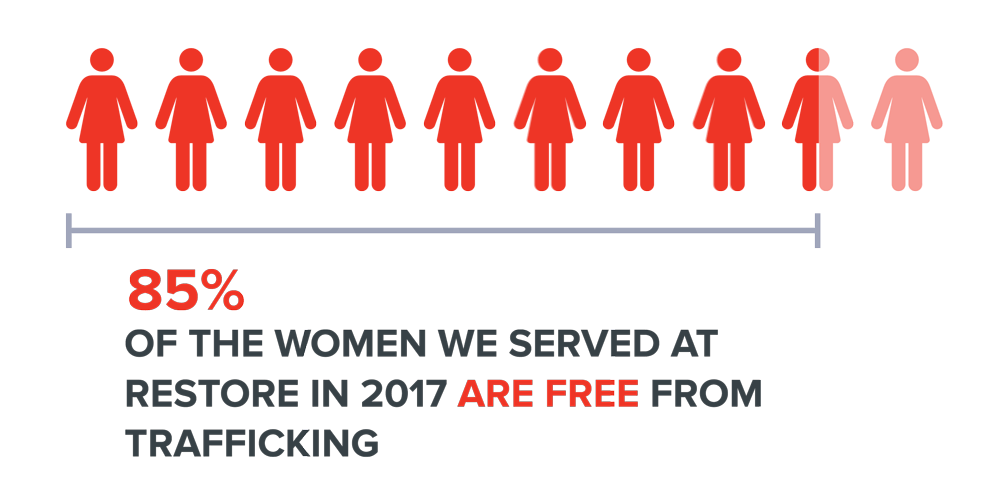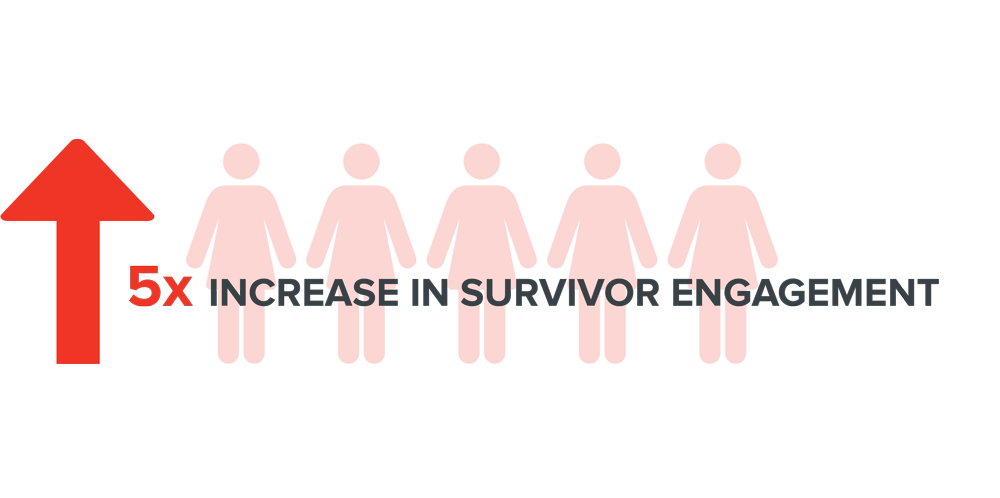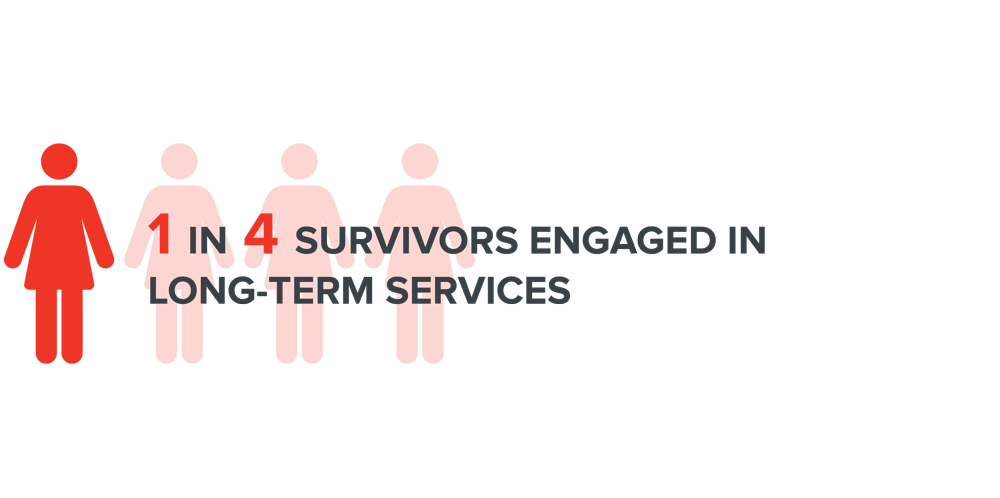Restore’s work is perhaps more culturally relevant now than ever before. The resonant outcry among men and women proclaiming that “Time’s Up” on sexual assault pushes us forward in our work to identify and serve survivors of sex trafficking in New York City and across the country.
Chief Program Officer, Dr. Amanda Eckhardt, reviewing impact data with our Operations and Events Manager, Rachel Larson.
To address the vastness of sex trafficking, we break it down into problems we can innovate around and solve. By focusing on safe housing, case management, clinical counseling, and job placement for trafficking survivors, we can bring more victims from darkness to light through our problem-solving programs.
In 2017, we streamlined our impact assessment model to report on the indicators of Identification, Freedom, Well-being, and Engagement (IF-WE) for every client we serve. Reflecting on these impact results from 2017, we are grateful for each woman we had the privilege to serve and for your partnership to continue this mission in 2018.
IDENTIFICATION
Intake form that Restore counselors use to identify survivors of sex trafficking.
Identification is the first step in serving a potential victim of trafficking. Our team works to formally identify a woman through a trafficking assessment to determine if she meets criteria for a victim of human trafficking. Identification opens up all other resources that Restore and other partners can offer on her path toward healing.
In 2016, we identified 50% of the women we served as trafficked or reporting red flags for trafficking. In 2017, this rate increased to 82% of clients identified as trafficked or flagged at-risk, a 71% increase in identification in one year.
2016 CLIENT IDENTIFICATION
2017 CLIENT IDENTIFICATION
FREEDOM
Our hope is that every client we serve will be free from her trafficker and have the resources she needs to live safely and independently in her community. Freedom from exploitation is critical before a survivor can begin her journey to recovery.
For the women we served in 2017, 85% are free from trafficking.
WELL-BEING
Improved physical and mental well-being is a key indicator of recovery. As a social service agency, we connect clients with healthcare professionals and community resources to support survivors in addressing their physical and mental well-being needs.
Overall, we have yet to see a significant change in physical well-being and trends indicate a slight improvement in mental well-being for the clients we serve at Restore. We are committed to continue refining our programs and resource coordination to help survivors experience improvements in physical and mental well-being as part of holistic, trauma-informed care.
ENGAGEMENT
Goal setting activity with clients engaged in our Economic Empowerment program.
Once a woman is identified as a survivor of trafficking, she is offered long-term support through one of Restore’s programs, aiming to walk with her as she secures safe housing, sustainable work, health care, immigration assistance, etc. We call this ongoing partnership with a survivor “engagement.”
Following our 2016 launch of long-term programs including Economic Empowerment and Case Management, client engagement has dramatically improved.
For the survivors we served in 2017, we had a 5X increase in engagement since 2016.
In 2016, 1 in 26 women we served engaged and enrolled in our Safehome and Economic Empowerment programs or case management services. In 2017, over 1 in 4 survivors engaged (Note: this engagement rate is competitive with other anti-trafficking organizations’ rate).









Comentarios Recientes